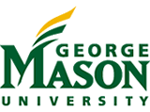
Laboratory for the Study of Social Anxiety, Character Strengths, and Related Phenomena
Dr. Todd B. Kashdan, Director
Overview and Mission Statement
The Laboratory for the Study of Social Anxiety, Character Strengths, and Related Phenomena is committed to conducting basic research to better understand the nature of social anxiety and positive psychological processes (e.g., curiosity, gratitude, mindfulness, savoring, purposeful living) and applying this knowledge to better people's lives. Although our laboratory is focused on specific areas of study, we recognize that our work is not an end in itself. Rather, we are focused on discovering, applying, and sharing psychological knowledge to better understand components of human functioning, improve the treatment of psychological problems, enhance well-being and character strengths, and promote this work at the individual and societal level.
Current research projects are focusing on:
- ways in which positive psychological experiences and processes add insight into the nature, development, and treatment of psychopathology (with particular relevance to social anxiety and other anxiety conditions)
- personality factors, social-cognitive processes, self-regulatory strategies, and situational demands that have direct and interactive roles in the (1) development and maintenance of emotional disturbances, and (2) facilitation of psychological and social well-being
- the phenomenology of social anxiety, positive emotions, and character strengths
- emotion vulnerabilities and positive psychological processes in meaningful social contexts
- social interactions and psychological experiences during the course of everyday life
- social-cognitive and situational factors that weaken or strengthen exposure and reactivity to positive and negative events (reward and punishment sensitivities)
- dynamic models of personality and emotion that account for dimensions such as intensity, frequency, stability, complexity, velocity, reactivity, recovery, tolerance, and contextual sensitivity
- development of "positive psychology" interventions to make everyday life more enjoyable, engaging, and meaningful (with relevance to clinical and non-clinical populations)
The methods utilized in our lab include:
- questionnaires and interviews
- experience sampling (or daily record) methodologies
- narrative techniques
- priming and laboratory experimental designs
- intervention and prevention programs to alleviate psychological problems and facilitate flourishing
To meet our scientific aims, the laboratory has a zealous investment in the training of effective clinical scientists. Mentoring is taken very seriously in hopes of cultivating critical thinking skills, autonomy, and those abilities necessary to generate innovative scientific contributions. Graduate students are considered “junior colleagues” involved in the entire scientific process from creative discussions, learning and synthesizing prior work, formulating and testing new ideas, and disseminating findings to the field. One of the greatest pleasures in this process is the exquisite sensation of discovering something new after completing a research study. To be the first vessel to hold an idea the world has yet to see or hear….and then disseminating this knowledge to contribute to real-world issues and concerns. The other profound pleasure of science is the social process of developing, exploring, and refining ideas during open and supportive sessions of intellectual racquetball. These sessions take place in individual and laboratory meetings.
Most graduate students are interested in research careers in academic settings. I am looking for students who are interested in social anxiety and other anxiety conditions, positive emotions and traits, interpersonal processes and relationships, self-regulation, and/or well-being. There are many ongoing research projects for students to get involved. In addition, I am always excited about bringing student’s own interests and research ideas to fruition. If you are an undergraduate student or recently graduated and are interested in being a research assistant, go to the following website and submit an application: Becoming a Research Assistant
The viability and productivity of our laboratory is a direct consequence of each member’s passionate interest in psychological science and the pleasure they derive from their work.
All correspondence concerning research, training, or anything involving the Laboratory should be directed to:
Todd B. Kashdan, Ph.D.
Assistant Professor
Department of Psychology
George Mason University
Mail Stop 3F5
Fairfax, VA 22030
Office Phone: (703) 993-9486; Fax Number: (703) 993-1359
email: tkashdan@gmu.edu